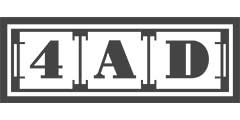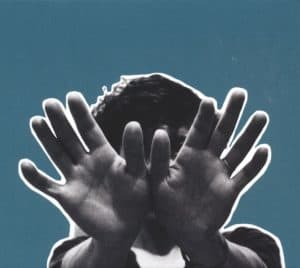Marketplace
2018 4AD PRESSING
- Catalog Number 4AD0052LP
- Release Year 2018
- Vinyl Mastering Engineer Dave Kutch
- Jacket Style Single
When listening to this album I think of this band or music:
The music of Merrill Garbus, who records as Tune-Yards, increasingly seems built on contradictions. Lyrically, Garbus’ worldview remains distinctly American, but musically, she remains the artist who studied abroad in Kenya and brought a host of worldly beats back her with her to Northern California. From Paul Simon to Vampire Weekend, plenty of Yanks have been charmed by African rhythms. Yet Garbus seems determined to instill such international flair for American clubland.
I would listen to this album while:
The album’s intellectual weight can instantly jolt a listener back to academia. Want to remember what it’s like to stay up late with text books and essays? Try “Colonizer,” on which Garbus sings, “I smell the blood in my voice” after acknowledging her white privilege. It’s heady stuff for dance music, but Garbus takes a cerebral approach to recreation.
Music from this album would be a great soundtrack to:
Volunteering. The record’s activist undercurrents may put off some listeners, but Garbus wants us— especially those with the time and finances to support a music habit—to reflect on our good fortune.
When she unleashed her debut in 2009, Garbus came off as a one-woman-band, using loops and a cut-and-paste aesthetic to flesh out her sound. Her singing felt rough around the edges, too, as she often wielded her voice as its own rhythmic instrument. While juxtaposing global beats with powerful, foot-stomping singing, Garbus channeled a hippie campfire aesthetic counterbalanced by a deep-seated desire to get listeners to move.
I Can Feel You Creep into My Private Life stands as her most well-rounded and accessible album—even as her lyrics probe complex social-political topics. “Coast to Coast” grapples with the divisive political rhetoric crippling the nation and wonders whether those who had long been content (read: silent) ultimately created the mess. The elusive “Now as Then” provokes thought as Garbus tackles unconscious racism and white guilt. On “Private Life,” she wonders “will you erase what you embrace?” and tries to reckon with her impulse to outfit songs in multiculturalism.
Amazingly, Garbus somehow makes it all feel somewhat fun. Complemented by bassist and multi-instrumentalist Nate Brenner, her works ricochet among organic and digital sounds with the fervent rush of a DJ swapping out tracks. Check the tick-tock groove of “Coast to Coast”—distinguished with a hypnotic swirl of manipulated instrumentation. A ukulele is there somewhere, but nothing sounds natural, with 4AD’s relatively quiet analog pressing claiming above-average bass response yet failing to amply isolate everything happening in the busy mix.
“Honesty” is weirder still, as vocals sound like keyboards and abrasive rhythms give way to dreamy textures. “Heart Attack” builds from a warm piano sample into pure chaos, and “Home,” with a soft falsetto and gentle groove, tries to find some sort of comfort in our stressed times. A repeated refrain—“she’s a fool”—makes it clear there are no easy answers.
I Can Feel You Creep into My Private Life


 3
3